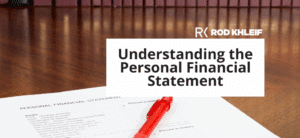How to Structure a Real Estate Investment Company
Top Real Estate Mentor, Best Selling Author, Host of #1 Real Estate Investing Podcast
The difference between amateur and professional real estate investors isn’t about how many properties they own—it’s about how they run their business. Amateurs treat real estate like a side hustle, dabbling in deals without a solid strategy. Professionals, on the other hand, operate with intention, structuring their investments in a way that protects their assets, minimizes taxes, and positions them for long-term success.
If you’re serious about building a real estate empire, you need to know how to structure a real estate investment company correctly from the start. That means setting up the right legal entity, not just for credibility, but for essential protections like liability shielding and tax advantages.
There’s no one-size-fits-all solution, but I’ll break down the most common and the best business structures for real estate investors so you can make an informed decision about what’s right for you.
Sole Proprietorship: The No-Structure Structure
A sole proprietorship is the default setup for many new investors. It simply means that you, as an individual, are buying and selling properties in your own name.
Pros:
- Simple to set up: just buy property under your name or use a DBA.
- No additional paperwork or legal filings required.
Cons:
- ZERO protection from liability. If you get sued, your personal assets, your home, car, savings, are all at risk.
- No tax benefits. In fact, you’ll pay self-employment tax on all non-passive income, which is an extra 15.3% hit.
Best For:
No one. If you’re serious about real estate investing, don’t even consider this. The risks far outweigh the benefits.
C-Corporation: A Rigid Structure with Heavy Tax Consequences
A C-Corporation (C-Corp) creates a separate legal entity that holds your investments. Many large businesses use this structure because it provides strong liability protection and allows for unlimited shareholders.
Pros:
- Limited liability. Your personal assets are protected from lawsuits.
- Can raise capital by issuing shares of stock.
Cons:
- Double taxation. The company pays corporate taxes on profits, and then you pay personal income tax on any dividends you receive.
- If you sell a property, gains are taxed at the corporate rate, plus an additional tax when you distribute the profits.
- More complex legal and financial reporting requirements.
Best For:
Larger real estate firms with multiple investors who need access to institutional capital. Not ideal for small or medium-sized investors.
S-Corporation: A Tax-Efficient Alternative with Limitations
An S-Corporation (S-Corp) functions similarly to a C-Corp but with a special tax election that allows profits and losses to pass through to shareholders, avoiding double taxation.
Pros:
- Avoids double taxation: profits are only taxed at the personal level.
- Owners can pay themselves a salary while taking additional income as distributions, reducing Social Security and Medicare taxes.
Cons:
- Only individuals can be shareholders. LLCs and other corporations can’t invest.
- Passive income limits. No more than 25% of an S-Corp’s revenue can come from rental income. If you exceed this, you’ll face a 35% tax penalty.
Best For:
Businesses that generate income from services (like property management), but not ideal for real estate investing due to the passive income restriction.
Partnerships: Flexibility with Limited Protection
A partnership is a legally binding agreement between two or more individuals or entities. There are two main types:
General Partnership (GP):
- All partners share equal responsibility and liability.
- Simple to set up but offers NO personal liability protection.
Limited Partnership (LP):
- Includes at least one general partner (who has full liability) and one or more limited partners (who have liability protection but no control over the business).
- Used in syndications where passive investors contribute capital but don’t participate in management.
Pros:
- Pass-through taxation: profits are taxed only at the personal level.
- Flexible structure for raising capital from passive investors.
Cons:
- General partners are fully liable for all business debts and legal issues.
- If a limited partner becomes actively involved in management, they lose their liability protection.
Best For:
Syndicators and investors raising outside capital.
Limited Liability Company (LLC): The Best of Both Worlds
An LLC combines the liability protection of a corporation with the tax benefits of a partnership, making it the go to structure for most real estate investors.
Pros:
- Personal liability protection: your assets are safe from lawsuits.
- Pass-through taxation: profits are taxed only at the personal level, avoiding corporate tax.
- Flexible ownership structure: you can distribute profits however you choose.
- Simple compliance requirements compared to corporations.
Cons:
- Some lenders may require personal guarantees for loans, making you personally liable for debt repayment.
- You must keep finances separate. If you mix personal and business expenses, you could lose liability protection.
Best For:
Most real estate investors. The LLC offers a powerful combination of liability protection, tax efficiency, and operational flexibility.
Choosing the Best Structure for Your Investments
For most investors, an LLC will be the best choice. A real estate LLC structure offers strong legal protection, pass through taxation, and the flexibility you need to scale your business.
That said, if you’re structuring a syndication or bringing in outside investors, a Limited Partnership might be more appropriate. Regardless of what you choose, here’s my advice: DO NOT operate as a sole proprietor. The risk is simply too high. Even if you’re just starting out, set up an LLC—it’s an easy, low cost way to protect yourself.
Structuring Your Real Estate Investment Company for Protection
The best approach to structuring your real estate business is to use an LLC as a real estate holding company structure. Here’s how:
- Form an LLC for each property or portfolio – This isolates risk and keeps lawsuits from affecting your entire portfolio.
- Consider using a master holding company – This is a top-level LLC that owns multiple subsidiary LLCs, keeping your investments organized.
- Use a combination of entities – In larger investments, you might combine LLCs with partnerships or even an S-Corp for tax efficiency.
- Work with a CPA and attorney – Make sure your structure is legally sound and optimized for tax benefits.
Lessons Learned and Expert Advice
Too many investors jump into real estate without thinking about how to structure a real estate investment company correctly. I’ve seen it happen time and time again, people treat real estate like a hobby instead of a real business.
Let me tell you, I’ve learned this lesson the hard way. When I started out, I didn’t use the right entity structures, and when the market crashed in 2008, I paid the price. Had I structured my investments properly, I could have protected my assets and bounced back much faster.
Don’t make that mistake. Set up your business the right way from day one. Talk to an attorney, form your real estate LLC structure, and start thinking like a pro.
Want to learn more? Join me at my next Multifamily Bootcamp, where I’ll teach you everything you need to know about structuring, financing, and scaling your real estate investments. See you there!
Ready to Build Your Multifamily Empire? 🚀
Join Rod Khleif’s Multifamily Bootcamp, the top event for serious investors, where expert investors answer your questions and share proven strategies. Learn directly from industry leaders and take your investing to the next level!
🎟 Reserve Your Spot Now!
Frequently Asked Questions (FAQ)
What is the main reason professionals choose a specific structure for their real estate investment company?
Professionals structure their real estate investment companies to protect their assets, minimize taxes, and set themselves up for long-term success. The right structure offers credibility, liability shielding, and tax advantages, making it essential for serious investors.
Why is operating as a sole proprietorship not recommended for real estate investors?
A sole proprietorship offers no protection from liability, so your personal assets are at risk if you get sued. Additionally, there are no tax benefits, and you may pay higher self-employment taxes on your income.
What are the main advantages of using an LLC for real estate investing?
An LLC provides personal liability protection, pass-through taxation, and flexibility in ownership and profit distribution. It is also simpler to maintain compared to corporations, making it the preferred choice for most investors.
When might a partnership be the best structure for a real estate investment?
Partnerships, especially limited partnerships, are ideal when raising capital from outside investors or syndicating deals. They allow for flexible capital raising, but general partners must be aware of their liability risks.
What limitations make an S-Corporation less ideal for real estate investing?
An S-Corporation restricts shareholders to individuals only and limits passive rental income to no more than 25% of total revenue. If this limit is exceeded, significant tax penalties can occur, making it less suitable for real estate investing.
What steps should you take to maximize protection when structuring your real estate investment company?
You should consider forming an LLC for each property or portfolio, possibly use a master holding company, and consult with a CPA and attorney. This ensures your structure is both legally sound and tax-optimized.
Why is it important to work with professionals when setting up your company structure?
Working with a CPA and attorney ensures that your business structure complies with legal requirements and is optimized for tax benefits. Their guidance can help you avoid costly mistakes and protect your investments.













